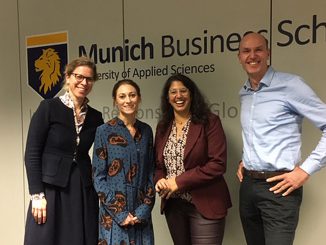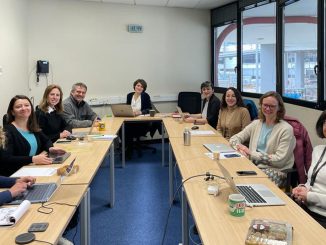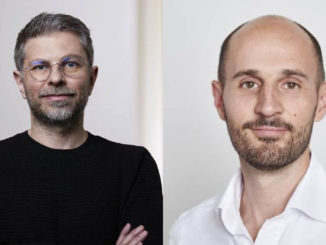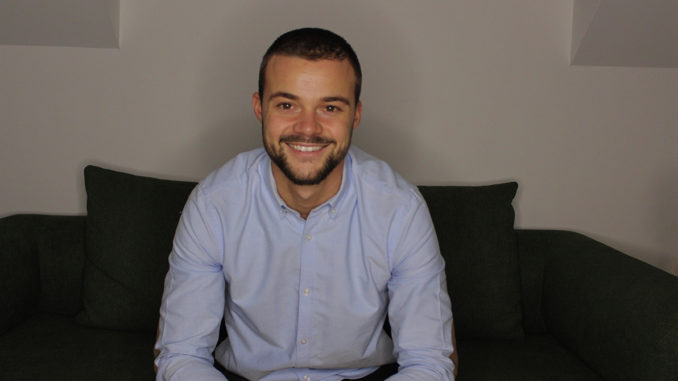
In spring 2021, MBS alumnus Pascal Ritter and his team launched the app The Fortunate Planet – a recycling app that encourages and educates users about proper waste disposal and at the same time supports municipalities in digitalizing their waste management industry. In the interview, Pascal Ritter gives us a closer look at his start-up, talks about his next goals, and explains how his master’s degree at Munich Business School shaped him in terms of founding his company.
MBS Insights: Pitching is part of everyday business in the start-up scene. In a nutshell: What is the idea behind your sustainable start-up The Fortunate Planet? Convince us!
Pascal Ritter: My team and I are developing an environmental tracking platform that cities and municipalities can use to optimize their waste management by connecting all relevant stakeholders and offering benefits. With the platform, we want to help the recycling industry in particular to recycle more raw materials and thus continuously increase recycling rates, as these are alarming on a global level. As a striking example, plastic is at the top of this list: in 2019, 400 million tons of plastic were produced worldwide, of which just 72 million tons were recycled, which is only 18%. Similar rates apply to e-waste, glass, paper, metal, etc. Most waste is incinerated, ends up in landfills or in nature.
When disposed of correctly, waste is a raw material for the next participants in the supply chain. This means that the higher the recycling rates, the closer we come to a circular economy with closed material cycles. With our newly developed app The Fortunate Planet, we want to make a contribution and motivate people in a playful way to dispose of their own waste correctly by offering all relevant information for this in just one app and rewarding them for their contribution.
As a software company, we develop the necessary platform and help cities and municipalities on their way to digitalization and becoming a circular city.
MBS Insights: Sounds interesting! On your website, the product is described as “the recycling app with the gaming factor.” Can you tell us more about these gamification elements? How does it work exactly and why do you think it needs these elements? Wouldn’t it be nicer if it worked without this reward factor?!
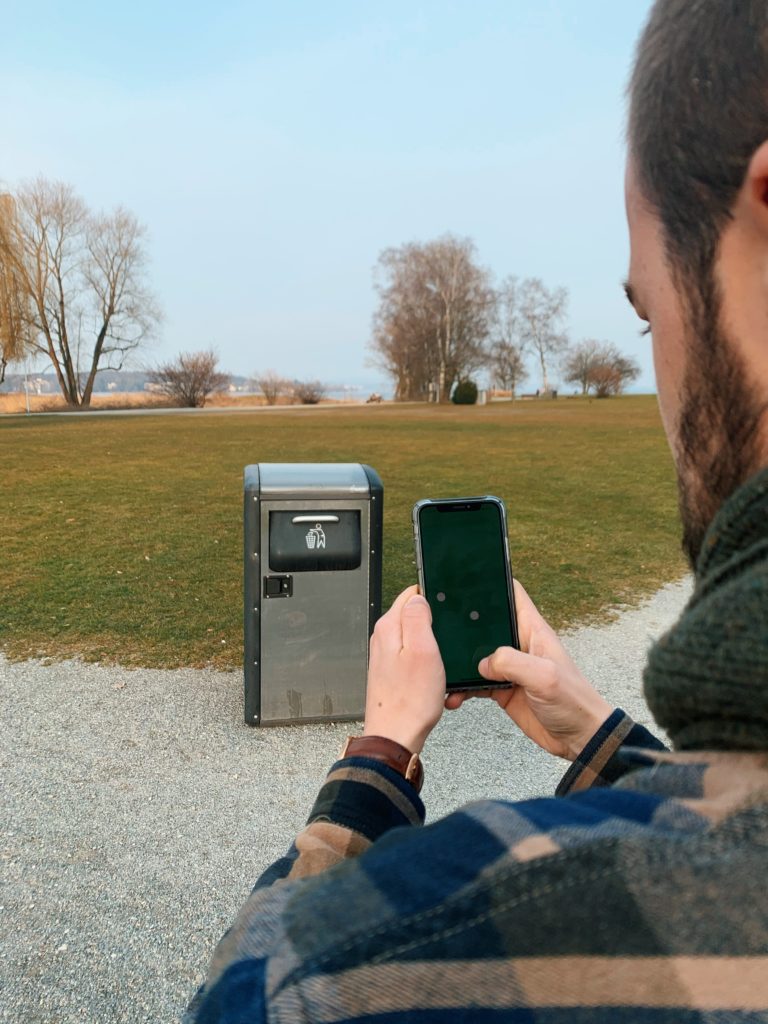
Pascal Ritter: Yes, that would be the ideal. Unfortunately, the recycling rates show that it hasn’t worked all that successfully so far, and examples such as the PET deposit bottle system make it clear that with the help of incentives, huge increases can be achieved in terms of correct disposal. We took these findings as a basis for our concept and mixed them with gamification elements in order to educate users in a fun way WHERE and HOW they can dispose of their waste and at the same time create incentives for them to do so.
In the first phase of the app, users map where they can drop off items in a very simple way and receive EcoCredits for each verified drop-off point, which allows them to move up in levels. They can also exchange the EcoCredits for vouchers and discounts from partners in the app’s own marketplace. This is the “basic installation” of a city and elementary for all further steps. The goal is to establish the first nationwide network of garbage collection points and to provide assistance, for example, when looking for the nearest public garbage can or glass container.
Once the basic installation of a city is done, users can “check in” at each verified drop-off point and perform different activities. From status reports of the drop-off point to “trash can full” messages to disposal tracking of a valuable recycling raw material, users have various options to earn more EcoCredits and thus not only do good for the environment in a game-like way, but also get rewarded for it.
The app serves as a communication platform between the residents and the municipality or the waste management organizations, which receive the reports of the various check-ins at the drop-off points and then know more quickly, for example, which trash can is full and at which drop-off points important recycling raw materials have been delivered.
MBS Insights: How did you choose the companies where the app users can exchange their credits? What was important to you and your team here?
Pascal Ritter: We only launched the Green Marketplace – as our marketplace is called – at the end of April. Therefore, it is still relatively new and we are currently in a two-month test phase, during which we are pursuing two goals: We want to promote national partners with sustainable projects and local trade.
In the spirit of “think global, act local”, the Green Marketplace aims to create an advertising platform that represents sustainable partner offers and at the same time gives the café around the corner the opportunity to reward local users for their environmentally friendly activities. Thus, we have divided the marketplace into two areas. In the first area, all national offers are listed under “online” and under the category “local” only offers from the city in which the user is currently located.
MBS Insights: From the first idea to the product launch: How long have you been working on your business idea? When was the entrepreneurial spirit awakened in you? What have been the biggest challenges, but also the biggest milestones so far?
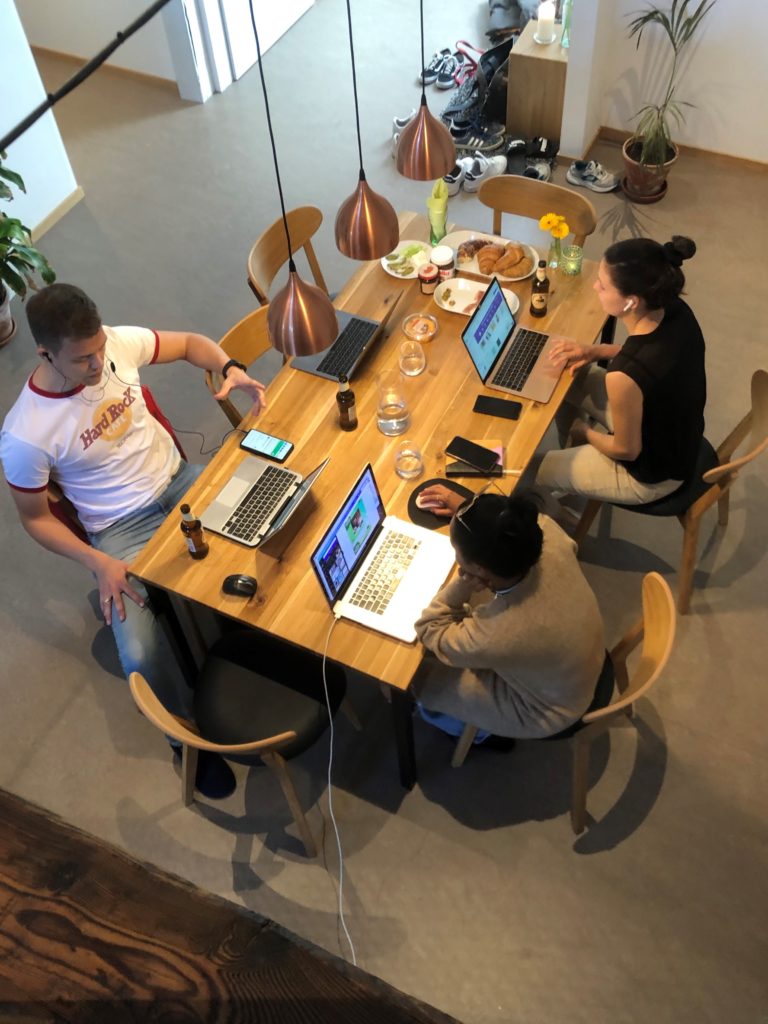
Pascal Ritter: The idea for The Fortunate Planet arose in November 2019, when I was on a backpacking trip through South America – a moment that decisively changed the rest of my journey, as I subsequently spent more time working on the concept than on the beach. At the time, however, the project had a slightly different focus: I wanted to develop a clean-up app that would allow environmental benefactors to track their clean-ups and then connect directly with sponsors and be rewarded, motivating many more people to clean up the environment. I thought, if there are people out there who can make a living by dancing videos on TikTok & Co., there must be a market for that in the long run.
However, we pivoted this focus in the first test phase because it did not address the root of the problem of littering and it could not have been fundamentally solved. Because if the collected waste is disposed of incorrectly and the disposers do not further process the waste in the end and, as unfortunately usually happens, throw it back into nature, even the best clean-up is useless. We then have a cycle, but more in the direction of a vicious circle. The crucial thing for us is correct disposal – and this is where we faced one of the biggest challenges in developing the app: which disposal point is recycling-friendly and which city has already digitized its drop-off points? Out of this need, we integrated the spotting of waste collection points into the app in order to build up a nationwide network in the long term, from which all users benefit and which at the same time helps the cities to classify and digitalize their waste collection points.
The biggest milestone recently was certainly the app launch for Global Recycling Day on March 18, 2021 We had originally planned to launch the app in April and ultimately launched it in the app store four weeks earlier than planned in order to be online especially for Global Recycling Day. There, the whole team did a huge job and trembled until the end. In the end, the app was approved at 6:21 am on March 18 and available as of 9:53 am – precision landing.
MBS Insights: The Fortunate Planet was recently awarded “Best Start-up of the Circular Economy 2021” by the three umbrella organizations BDE, BDSV and VDM. What does the award mean to you and what are the next steps of your movement?
Pascal Ritter: It makes us immensely happy to be awarded among all the innovative recycling start-ups and to receive the appreciation that we are on the right track. At the same time, we also know that we are still at the very beginning of a long journey, that we have a lot to learn and that the competitors are not asleep. Therefore, this award is an incentive to continue with the same determination and in the next step to support the first Fortunate Cities in form of pilot projects with the transformation in combination with our app and expertise. For this citizen movement, we are initially focusing on the DACH region.
MBS Insights: The value of responsibility is also lived and taught at Munich Business School. How did your master’s degree at MBS inspire you to come up with your sustainable business idea and what knowledge you acquired during your studies can you still draw on today?
Pascal Ritter: After I had started my professional career in the recycling industry, I came to MBS for my master’s degree with the goal of acquiring more profound knowledge for higher management positions. My expectations were mainly focused on the classic courses à la Corporate Finance & Co., from which I had hoped the most for my further path before the studies. In retrospect, however, I have to say that the soft skills modules and methods in particular made me think and perhaps even rethink. Examples include the Successfactor Happiness course with Prof. Dr. Schmidkonz and my semester abroad in India. With regard to my sustainable business idea, India was one of the game changers, because as a trained recycler I suddenly saw how waste is dealt with – or not dealt with – in such an exciting country.
P.S. Dear Prof. Dr. Zirus, of course I was also able to learn a lot from Corporate Finance II and the different forms of company valuation help me even more today :).
MBS Insights: What role do you think innovations and start-ups play in the development of a more sustainable and greener world?
Pascal Ritter: An elementary one! A small boat turns faster than a large freighter and can react more quickly to new circumstances. I see it similarly when it comes to start-ups and innovations.
MBS Insights: And last but not least: What is your advice for young entrepreneurs or students who are thinking about founding a start-up?
Pascal Ritter: Do it right away! Even if there’s a high chance that it won’t be a success, you’ll learn so many new things yourself that will help you in the long run in any job. Start with small tests and when you realize that the topic really interests and stimulates you, intensify your work.
If your personal situation allows it and you don’t have a precise idea yet: take three months and focus on identifying without pressure for yourself personally what you are looking for in life and what you want your life to look like in 5, 10 and 30 years. Then find a long-term goal that will still drive you in 10 years and build a business model around it that is in harmony with your own goals.
MBS Insights: Thank you, Pascal, for your time and the exciting insights into your work. All the best for the future!

You are interested in economics and want to acquire in-depth business know-how?
Then the international business degrees at Munich Business School (MBS) are just right for you! At MBS you won’t cram dry theory from old textbooks, but learn in a outcome-oriented way and gain valuable practical experience. Convince yourself:
Bachelor’s in International Business
Master’s in International Business
Master’s in International Business I Finance
Master’s in Innovation and Entrepreneurship
Master’s in International Marketing and Brand Management
Master’s in Sports Business and Communication
MBA General Management
Doctor of Business Administration

